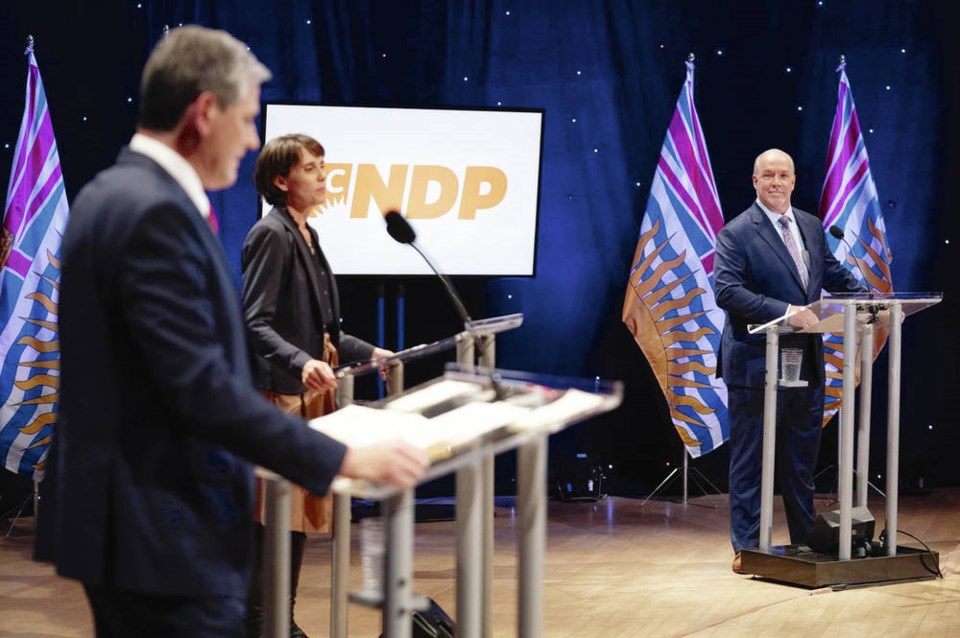As we wait for the outcome of the provincial election, some reflections on the TV leadership debate.
To start with, what a refreshing change from the dreadful spectacles we’ve seen south of the border.
There we had candidates repeatedly shouting over each other, refusing to answer point-blank questions, and moderators showing clear ideological bias in the way they worded questions.
At the B.C. election debate, Shachi Kurl of Angus Reid did a brilliant job moderating. She took no nonsense, held candidates to their time limits, and repeatedly phrased questions in the most pointed way possible. If each of the leaders managed to duck some queries, it wasn’t her fault.
But the more interesting question is why Canadian political debates are so much more constructive than the farces put on by our American neighbours.
Part of it is that Canadian politicians are forced to engage in meaningful Q&A sessions in Parliament. We have regular question periods where evasions are readily smoked out. Our leaders have to think on their feet.
There are no meaningful debates in the U.S. Senate or House of Representatives. Instead members get up on their feet, plod through prepared statements in front of an empty chamber, then sit down while the next speech is read.
Again, in parliamentary systems, cabinet ministers, including the prime minister, also sit in Parliament. They have to answer for their actions in that forum.
In the U.S., with its divided system of government, the president and his cabinet are not members of Congress. They go their way, the Congress goes its.
The paranoid framers of that arrangement called it checks and balances. Cheques and cheques would have been a better description.
Members of Congress are not primarily there to discuss issues. They’re there to score deals for their districts by tacking pet projects onto any matter at hand.
Part of the reason American politicians get away with this is that their re-election rate is astronomical. Over the last 10 election cycles, 94 per cent of House members and 87 per cent of senators were returned, and some of those who weren’t died or retired.
There have been years when close to 100 per cent of both groups were re-elected. Gerrymandering of House districts is partly to blame.
And all this at a time when public approval of Congress stands at a laughable 13 per cent.
The truth is, America’s political system is an elaborate Kabuki performance, with each of the actors assuming a role that is largely symbolic. All that’s missing is the elaborate hair styling, and even then, Trump gives it his best.
Now that’s not to say Canadian politicians aren’t capable of play-acting when the need arises. We saw some of that in the B.C. leadership debate, when John Horgan gamely insisted he was taking politics out of the scene by calling an election.
Even then, Green Leader Sonia Furstenau delivered the appropriate put-down.
But by and large our system forces politicians to engage with their opponents in ways that are both more meaningful, and respectful, than we find south of the border.
And it’s not because we have better men and women at the helm (although we do). It’s because our system of governance is massively superior to the American version.



